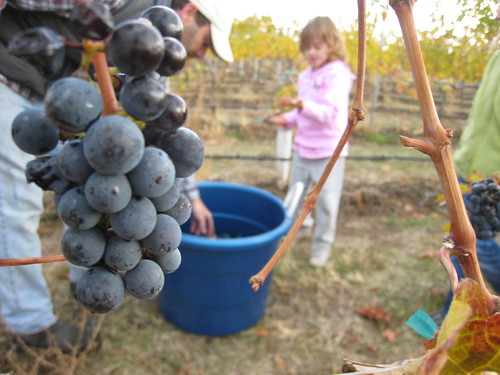Our kids love grape juice, but there’s some controversy in our household whether we should indulge their taste or steer them to lower-sugar fruit juices instead. After all, a single cup contains a heaping 36g of sugar, and while the glycemic load of 12 may be low compared to some foods, it’s much higher than apple juice (6) or orange juice (9).
Still, while it's true that we shouldn’t overdose on sugar, I think it's dangerous to lump all the complexity of nature into that single term "sugar", as if all sweet-tasting drinks are biologically equivalent, or that the number of calories in a food is the most important determinant of health.
Nutrition scientists at Purdue University ran a double-blind placebo study of 76 slightly overweight people that concluded that grape juice doesn't cause changes in appetite and, in overweight people, may actually help with waist circumference. The study was financed partly by Welch's, so you can argue that it may be biased, but that’s true of any study. I prefer to look carefully at a broad set of data points before making up my mind.
And there is intriguing evidence that grape juice, like other berries, may have a positive affect on brain aging. One double-blind three month study on older adults showed a nice bump in some cognitive function, though the small sample size makes it very hard to draw conclusions.
Of course, rather than look at broad studies, what I really want is something that will measure the affect on me. N=1. I could very well be an outlier, but that’s true about most things worth studying. Maybe I’ll add grape juice to my self-testing and see.
